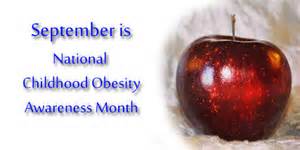Dear Reader: This is Part I of a four-part series identifying the warning signs for food-related problems and focusing on childhood obesity.
Julie just turned 15. This is the third night that she chimes in about her meat, “Mom, this is disgusting …and cruel too!“ She also declares, “I am a vegetarian.”
You are not sure what to think.
You recall that eating disorders start by teens not eating meat.
On the fifth night that Julie eats only salad you are officially worried.
Julie joins PETA (People for Ethical Treatment of Animals) and accuses you of being heartless towards animals. Julie is a month away from a school dance. She complains about being fat and discusses what to wear to the dance, literally, all the time. When her friends come over, a week into the vegetarian declaration, she eats pepperoni pizza.1
Does Julie have an eating disorder? How do you know she is eating normally?
Signs of Normal Eating With Teenagers
1) Your daughter gets hungry at ordered recurring times.
2) Your son has no problem eating in public or with family.
3) She announces, “I am starving” as soon as entering the house.
4) Portions seem normal to you, according to exercising, or menstrual cycle in girls.
Eating problems are never about food alone. Teenagers may feel anxious, depressed or stressed. They undergo hormonal, psychological and physiological changes, even at the brain level. Body image and food issues are common. This does not mean she or he will develop an eating disorder. Dieting may be situational in your child’s development. It may be about fitting in, in a certain social group, or just about losing weight. However, monitor the situation because eating disorders are serious.
Signs of Normal Dieting With Teenagers
1) She will talk to you about dieting.
2) She will be pleased with losing some weight and will celebrate her reflection in the mirror.
3) He will not become more restrictive every week.
4) She will forget she is dieting and eat if something appears yummy.
5) She will discuss dieting with her friends and eat non-diet food with them.
6) She will not isolate herself.
Tips to Make Dieting a Healthy Experience
1) Talk to your daughter to find out if she is sad, nervous, upset or excited.
2) Tell her that diets should have a beginning, a middle stage and an end.
3) NEVER disqualify his/her dieting.
4) Connect dieting with feelings and emotions but do not argue about them.
5) Let him/her know that respecting stomach hunger is healthy and normal.
6) Have fresh and yummy foods available at home.
7) Never treat losing weight as a huge success.
8) Let her know that to you, she/he looks great, always!
9) Explain that there is not only one-way to be beautiful.
10) Explain that food labels are not always accurate because their purpose is commercial.
Preventive Measures Against an Eating Disorder
Are there preventive measures for a parent to take? Yes, there are!
1) Create a safe, relaxed and fun environment conducive to eating according to physical hunger, not according to stress and emotional hunger.
2) Do not create an environment where emotions must be stuffed!
3) Avoid perfectionist expectations.
4) Do not criticize other people for their looks or the way they eat.
5) Offset the cultural norm by eating with gusto and no guilt!
6) In essence, make eating a happy experience!
Conclusion
Your daughter began dieting, intending to lose a couple of pounds. Your job is to help her not get so entrenched as to develop an eating problem or disorder. Providing emotional support and good foods, while strengthening her self-esteem until dieting is no longer interesting to her, is a good tactic. In Julie’s case, dieting was forgotten after the dance.
In our society looks are far too important. If your home life does not revolve around weight, adhering to only one narrow beauty ideal or being critical of her body type, you are already doing a good job and you are ahead of the game!
* Julie is a fictional character, not a real teenager.
1 This article is based on the book, Just a Little Too Thin, by Michael Stroeber, PhD & Meg Schneider LCSW, (LifeLong Perseus Group 2006). It is a Must Read for parents and professionals.
 Iréné Celcer, 56, has extensive experience working internationally with men, women, and children who suffer from obesity, body image disturbances and eating disorders. She is a regular guest at CNN where she talks about her specialties on food and disordered eating, parenting and bullying. Iréné holds graduate degrees in psychology from Universidad de Belgrano, Argentina; Holistic Psychologyfrom Antioch University, San Francisco; and Social Work from Yeshiva University, New York. She is is the author of the collection of books Hope & Will Have a Baby (Graphite Press, 2007, 2010), 99 Tips to Reset the Table: Parenting in a Society Obsessed with Food, Weight, Obesity, & Body Body Image (Graphite Press 2015). She is also the author of some books in Spanish: Mujer, Cuerpo, Dieta? La Voz de La Obsesion Women, Their Bodies & Dieting: The Voice of an Obsession (Vinciguerra 1996) and La Tirania de las Dietas/The Tyranny (Planeta 1994). She is mom to a 15 year old.
Iréné Celcer, 56, has extensive experience working internationally with men, women, and children who suffer from obesity, body image disturbances and eating disorders. She is a regular guest at CNN where she talks about her specialties on food and disordered eating, parenting and bullying. Iréné holds graduate degrees in psychology from Universidad de Belgrano, Argentina; Holistic Psychologyfrom Antioch University, San Francisco; and Social Work from Yeshiva University, New York. She is is the author of the collection of books Hope & Will Have a Baby (Graphite Press, 2007, 2010), 99 Tips to Reset the Table: Parenting in a Society Obsessed with Food, Weight, Obesity, & Body Body Image (Graphite Press 2015). She is also the author of some books in Spanish: Mujer, Cuerpo, Dieta? La Voz de La Obsesion Women, Their Bodies & Dieting: The Voice of an Obsession (Vinciguerra 1996) and La Tirania de las Dietas/The Tyranny (Planeta 1994). She is mom to a 15 year old.

